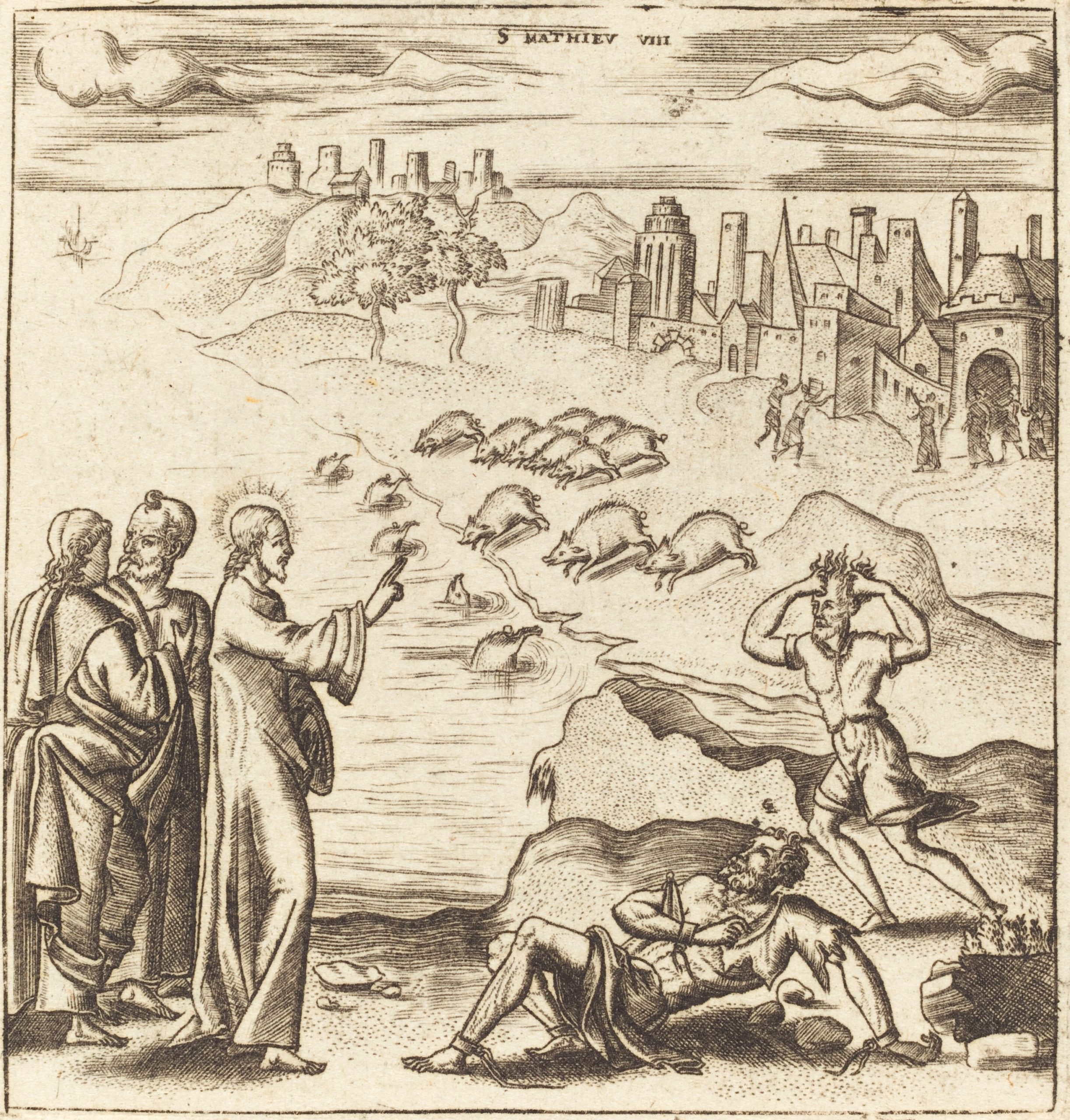Luke 8:35–39
Image is from
Léonard Gaultier (artist) French, 1561 – 1641, Scenes from the New Testament
Sunday is Juneteenth, the day in 1865 when enslaved people of Galveston, Texas, learned they were emancipated, although it had been the case since 1863. This observance is “about the journey and achievement of African Americans — from a horrific period of sanctioned enslavement to the pinnacle of human endeavors” (Juneteenth.com). So, it is fitting that Sunday’s Gospel (Luke 8:26-39) is about healing and freedom: A man possessed by demons, ostracized and “living in the tombs,” is made whole by Jesus. It’s the drowning pigs story
Today, we tend to understand demons as a metaphor for personal struggles — such as addiction, disease, or chronic illness. But demons can be systemic in society as well, such as our country’s addiction to guns, white supremacy, and income inequality. These societal demons perpetuate the fear that keeps us divided. We see systemic fear of freedom in Sunday’s Gospel as well. The Gerasa community is seized by fear at the man’s healing and restoration, and they banish Jesus, the healer and restorer.
Juneteenth is a time to celebrate what has been done to make our world better for all and reminds us to recommit ourselves to the healing work we need to do before we can all truly be free. It also reminds us to attend to the systemic forces that prevent change, keep oppression in place, and distract us with the falsehood that one person’s freedom must be another person’s loss. As the Rev. Dr. Martin Luther King, Jr. said, “Injustice anywhere is a threat to justice everywhere. We are caught in an inescapable network of mutuality, tied in a single garment of destiny. Whatever affects one directly, affects all indirectly.”—Ruth Frey
Jesus disturbed the comforted and comforted the disturbed – Ryan W. Clayton
The story of the Gerasene demoniac in Luke pushes us to reflect on questions of identity. Immediately preceding this story, Jesus calmed violent wind and raging waves with a word. His disciples ask, “Who then is this, that he commands even the winds and the water, and they obey him?” (Luke 8:25) Who is this, indeed? He masters the storm when the disciples cry out for help, he masters the demons when they cry out to be left alone. Junteenth gave a legal identity to those caught by slavery.
Juneteenth is also related to World Refugee Day.
Junetenth is about personal freedom. World Refugee Day also proclaims the value of each person as a unique child of God and commit ourselves to the healing and wholeness of all persons.
There is a community element as well. As the Bishop of Atlanta writes “God rejoices when we celebrate the truth-that we were made for each other and for God’s glory. “How good and how pleasant it is for brothers and sisters and siblings to dwell together in unity.”
Juneteenth also preserved the integrity of the family by allowing families to stick together without the possibility of being sold. World Refugee Day remembers and honors the families and individuals made homeless by disasters, wars, poverty, and intolerance around the world

